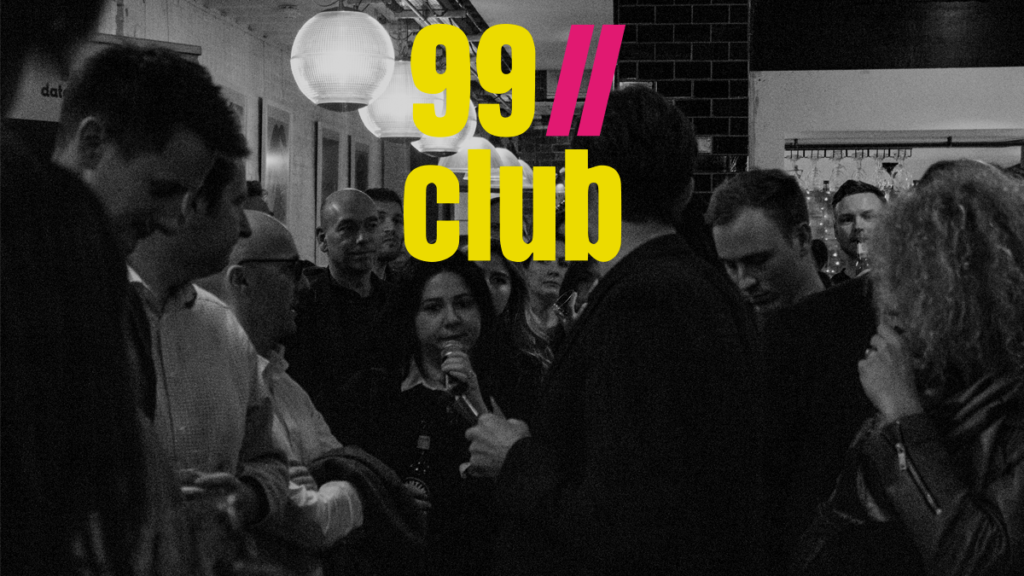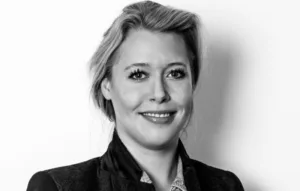Education is broken and we do not do enough to celebrate the “superpower” of creativity, says Google’s Craig Fenton in an address tackling the industry’s biggest issues.
Fenton, UK and Ireland director of strategy and operations, was speaking at the launch of 99Club, a collaboration between New Digital Age and Mad//Fest that aims to bring together the most brilliant minds in marketing, advertising and tech.
In just 99 seconds Fenton outlined the need to embrace a life of continuous curiosity and realise that creativity could be interpreted and expressed in valuable ways. “Creatives are our new superheroes,” he said.
Such a mindset needed to be embedded in schools, other learning institutions and businesses — including marketing — in order to learn and grow.
Also taking part in a series of 99-second talks were Jerry Daykin, GSK EMEA media director; Seb Bardin, Unilever’s global head of acquisition and marketing; digital transformation specialist Tiffany St James, founder of Transmute; Harriet Kingaby, co-chair of The Conscious Advertising Network; NED and management consultant Mary Keane Dawson and Ed Couchman, UK general manager of Snap.
The event, held at London’s Union Club, intended to address digital’s biggest issues in front of an exclusive audience of the most brilliant and forward-thinking minds in marketing, advertising and tech.
Today’s digital skills are already (almost) obsolete
Other topics explored in the micro-speeches included the need for diversity of talent, as well as respecting an advertising ecosystem that supports both quality content and consumer privacy.
Education was a key theme, too, for St James who told the room that the digital skills being taught today would be obsolete tomorrow. “If we can do one thing for our younger talent and for all of ourselves, is to learn how to collaborate, to learn how to network, to learn, essentially, how to learn. To make sure that we can do problem solving really well.”
She outlined the need to have a structure or scaffold in order to learn how to learn continuously across all parts of a business as well as individually taking a journey. “The next five years I’m continually in a freshman class,” she pledged.
Diversity matters – for individuals and the industry at large
For Couchman, the biggest industry issues encompass diversity, inclusion and equality. “We have a responsibility as leaders within our business and leaders in our industry to drive change. We need to recognise that we have positions of power. And that responsibility is for us to change the way that things are working right now.”
Diversity matters — not just for moral reasons — but for the business bottom line. And, he said, “it makes us better creatives. We don’t just need to be bright and brilliant. We need to be bright, brilliant and brave leaders. Let’s use our position of power to make change.”
Stop inadvertently funding the internet’s shady content…
Change should be external, as well as internal, according to Kingaby. Her plea was to ensure that advertising cash stops inadvertently funding the “not so great stuff” as well as the quality journalism and brilliant content consumers expect.
“We’re talking the white supremacist content, the climate denial content. Think about ad fraud, too, advertising money goes to some dark places. As an industry we need to lean into our responsibility to fund the internet and fund it better.”
The theme continued with Daykin. “I’m really passionate about fixing diversity inclusion, but from an external perspective we shape culture, we’re a really massive voice in the kind of the content out there. How do we make sure that reflects modern Britain?”
He argued that advertisers must represent their audiences and do the right thing for them but that there were issues such as overly-cautious filters and natural biases that meant some were accidentally excluded.
…but don’t be risk-averse at the expense of the audience
“Look at some of the stuff we’re doing on brand safety in particular — we don’t want to fund hate speech or appear on fake news but sometimes we use quite blunt ways of achieving that.”
Brands were being naturally overcautious, Daykin warned, citing a Vice study that showed words such as ‘lesbian’ and ‘Muslim’ were blocked more than ‘murder’ and ‘rape’.
Similarly, Bardin argued for a better consumer experience. His fix was to make the data “great again”. “For me, it’s making sure about the data that we’re collecting: that it’s connected in the right way, but it’s also used the right way.”
Do more with less – give consumers the experience they deserve
It is time to forget or dial down the retargeted approach of advertising in favour of having the right first-party data connecting the right content with the right experience and then: “Provide the consumer the right experience at the right moment so we can make the ideal programmatic dream come true.”
The consumer was also at the heart of the issue for Keane Dawson, who warned of an “existential crisis facing marketing in a world where we need to consume less”.
Her speech, inspired by the collective consciousnesses of @NewBreedWarriorWomen, was a battle cry for brands to listen more and speak less. They should “use the power of the pause of the silence” and only speak when they have something to say.
In conclusion: “We need to stop the noise and let consumers have a chance to think too.”
The 99 Club from New Digital Age and Mad//Fest is an exclusive network of people who are changing the industry for the better, with events held quarterly. We can’t stop Brexit, Trump or the Royal Rumble at the Palace. But we can bring people together to make a positive contribution on issues like trust, innovation, diversity, talent, ethics or tech. If you know someone who should attend the next event, or hope to attend yourself, please get in touch and let us know why.








